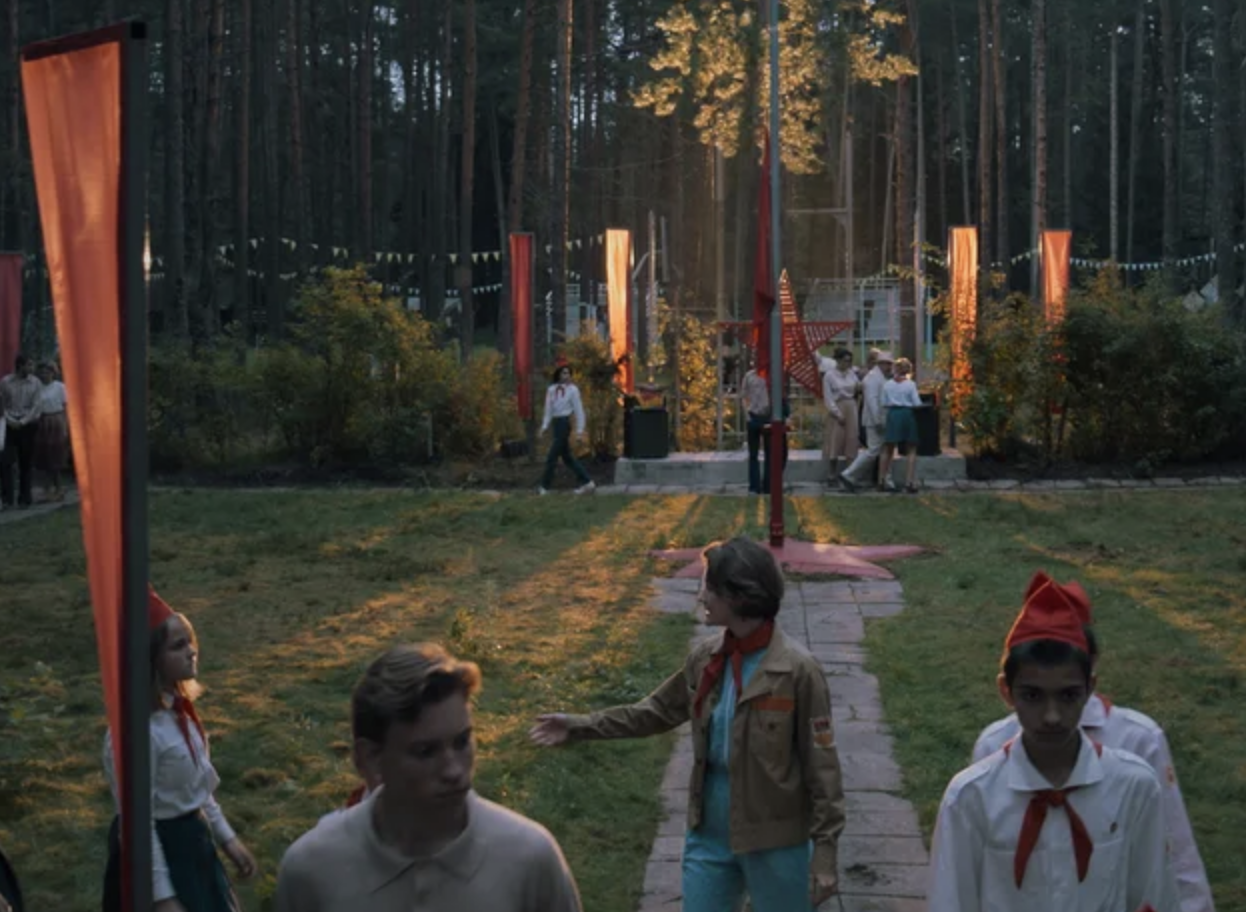May 19 on "KinoPoisk HD" begins showing the mystical fantastic TV series "Pishcheblok" based on the novel of the same name by Alexei Ivanov. The book was adapted by Alexander Talal, who worked on the films "Black Lightning" and "Day Watch", and Svyatoslav Podgaevsky was responsible for the production, whose filmography includes the horror films "Mermaid. Lake of the Dead "," The Queen of Spades: Black Rite "," The Bride "and" Yaga. Nightmare of the dark forest. "
The events of the series unfold in the summer of 1980 in the pioneer camp "Petrel", located exactly on the banks of the Volga.
A new, "Olympic" shift is arriving there by river tram.
Life in the camp goes on as usual - children make friends, quarrel, fall in love, play football, prepare for a concert, and tell horror stories at night.
However, the serene stay of the inhabitants of the "Petrel" is overshadowed by strange events.
Pioneer Valerka notices that his friend is drinking blood from one of the boys.
It soon becomes clear that there are other vampires among the children.
They are distinguished by a neat appearance and exemplary behavior.
Valera and counselor Igor will do everything to get rid of the evil spirits and not become a victim of bloodsuckers until the end of the shift.
Comparisons of the adaptation with the original rarely end in favor of the adaptation.
The story with Pishcheblok was no exception.
The novel by Alexei Ivanov is a ready-made script for a mini-series of small timing.
Therefore, the viewer who has read the book will probably not understand at first how the writers (among whom is Ivanov himself) managed to extend the dynamic novel by eight episodes of about 40 minutes each.
But during the viewing, everything will fall into place: the narrative is very prolonged (one exposure takes about one and a half episodes), the heroes perform a lot of additional actions, new characters are introduced into the plot.
So, the main character unexpectedly has an older brother who died a year earlier - immediately after returning from the mysterious "Petrel".
© Shot from the TV series "Pishcheblok"
The first three episodes, sent to journalists, cover the first half of the novel and capture some of the events depicted in the second.
It's even a little curious what the filmmakers will show in the remaining five - even if by the end of the third Igor does not yet share Valerkin's fears about the situation in the camp, the finale seems suspiciously close.
Another significant difference between the series and the original source was the ideological component.
Ivanov's arguments about "dead" Soviet ways and "correct" bloodsuckers were included in the film adaptation, but are completely lost due to other accents.
It is possible that the viewer who has not read the book will not even focus on the social problems of the "Pishcheblok" - the problems of people living at that time became only a barely noticeable background on which the main, mystical story unfolds. Thus, the philosophical parable of totalitarianism in screen presentation has turned into a much simpler and more unambiguous fantasy thriller about vampires.
Such a scenario decision prompts us to think about the target audience of the series.
Despite the craze for the Young Adult genre, the film about children and adolescents fighting vampires is unlikely to attract a lot of adult viewers - from the point of view of "fantastic" adventures, the plot sags greatly, and their peers are more likely to be fully imbued with the personal, sometimes extremely sentimental stories of the heroes. having similar experiences.
In addition, on the eve of the opening of the first shifts in summer camps, such a project for children would be very useful.
At the same time, it is obvious that "Pishcheblok" is not aimed at a young audience - it contains both violent scenes with blood and severed limbs, and erotic episodes (and a series with an "18+" rating is coming out).
© Shot from the TV series "Pishcheblok"
The indisputable advantage of "Pishcheblok" is a successful cast.
Pyotr Natarov is an ideal hit in Valerka, and Daniil Vershinin is quite organic in the image of Igor.
In addition, such eminent actors as Timofey Tribuntsev, Irina Pegova, Sergey Shakurov and Nikolai Fomenko appear in the series, appearing in somewhat unusual, sometimes exaggerated and comical roles.
For the cast, the creators of the tape should be forgiven at least some of the other sins.
What exactly the authors of "Pishcheblok" managed to do was the scenery.
In the series, the Soviet aesthetics are fully sustained, noticeable, among other things, in the little things.
The production in general is also at its best - from scenes depicting the cheerful everyday life of the pioneers to the darkest and most frightening episodes.
So, already the first scene - an adaptation of a child's horror story about a vengeful statue of a bugler - sets a mystical tone from the first frames, which will continue to be emphasized by ominous sounds and a gloomy play of shadows.
Sunny shots that illustrate everyday life in the pioneer camp and plunge even the most callous viewer into nostalgia look no less impressive and aesthetically pleasing.
Even if the authors of the film adaptation of "Pishcheblok" failed to fully preserve all the advantages of Alexei Ivanov's novel and retain the attention of the audience (at least from among the employees of the RT culture department), this series guarantees aesthetic pleasure throughout the entire timing.
Which is also valuable.

